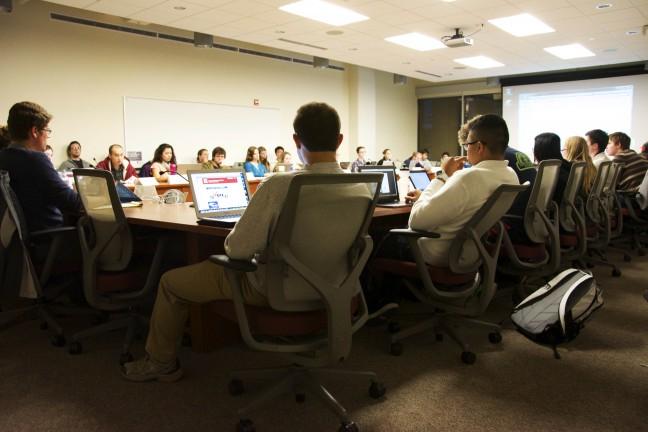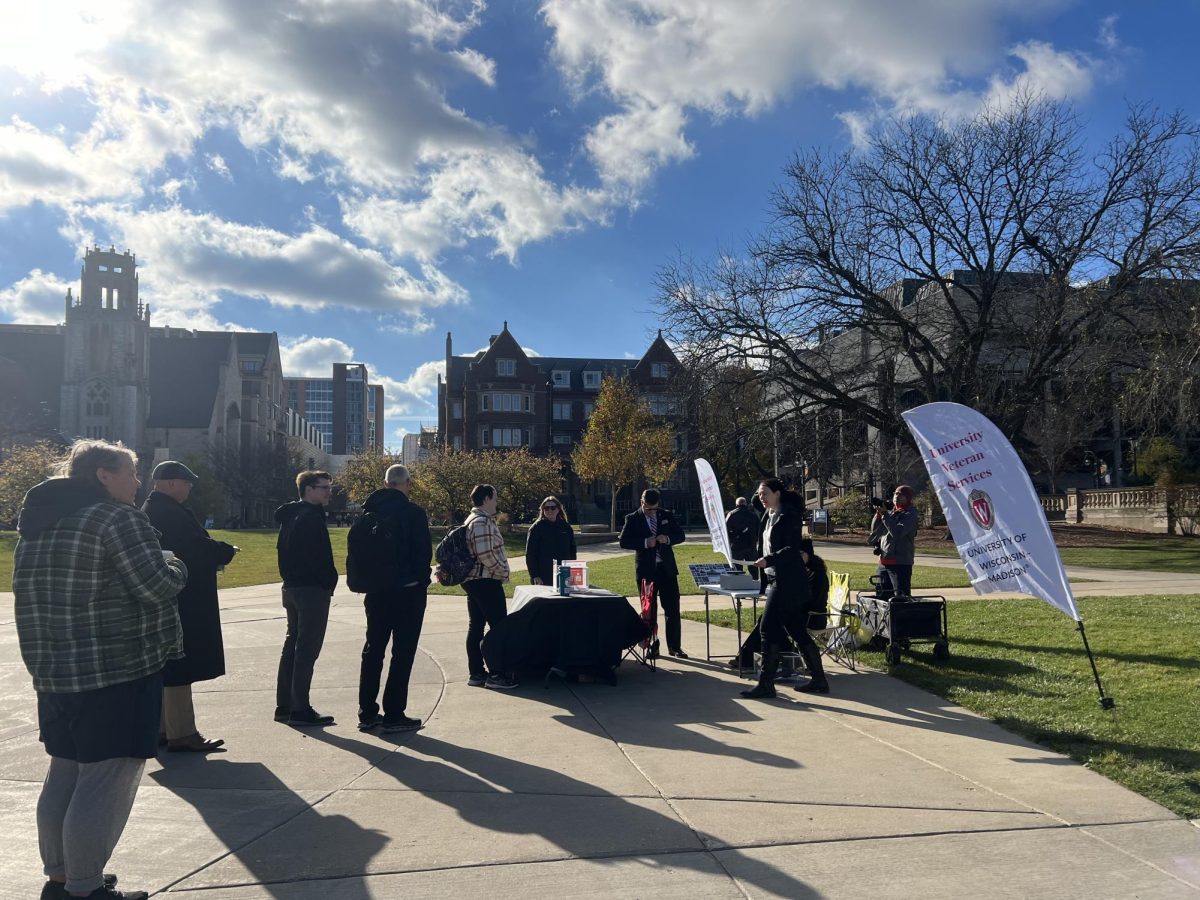Recreational Sports Director John Horn laid out the current timeline and Master Plan for the future redesigning of recreational sport facilities for students at Wednesday’s Associated Students of Madison Student Council meeting.
Under the Master Plan four major University of Wisconsin athletic facilities will be redesigned through fall of 2022.
“[The project] is waiting for a signature in the capitol building,” Horn said. “These changes are supported by 83 percent of students.”
Horn laid out an approximate timeline for the redevelopment and completion of the new athletic facilities. The first phase of the project is to complete renovations of the Near West athletic fields by fall 2016, the SERF by fall 2019, the Natatorium by fall 2021 and lastly the Near East fields by fall 2022.
Horn said he hopes to get it moving as soon as possible and that $55.5 million were allowed for the project by Chancellor Becky Blank.
“The changes are necessary because the SERF is operating on 200 percent capacity from when it was originally built in 1983,” Horn said.
Horn also hopes to get students involved in the project and create a student committee in order to help oversee this timeline of future renovations and redesign projects.
A legislation put forth by the finance committee to reallocate $33,000 from operations grants into the finance committee’s travel grant fund passed unanimously.
“[The travel grant fund] is being used up faster this year than in any other past years,” Mary Prunty, Finance Committee chair representative, said.
Other unanimously approved legislations included: a $6,168 grant for the Wisconsin Union Directorate Film Festival, a $5,061.12 grant for India Night and a $7,871 grant for the 1491’s Comedy Show.
Also discussed was Student Judiciary Bylaws Repeal and Recreation legislation. The rules committee, headed by Rep. Sean Owczarek, made an effort to pass legislation that will make the changes to the current bylaws official.
“[The committee] edited the wording of the bylaws to be more ‘user-friendly’,” Owczarek said.
After the proposal was put forth, debate around the necessity of changing the current bylaws ensued. The legislation was tabled and will be discussed at the ASM meeting next week.
Debate also arose over a new committee requirement legislation which includes stricter rules on representatives missing committee meetings. Opponents of the changes to committee attendance meetings included Rep. Steven Hughes.
“The organization wants to get people who want to be active in committees instead of manipulating people into serving on committees,” Hughes said.
Proponents of the legislation to introduce stricter measures included Rep. Andre Hunter. Students need to be kept accountable, and if they have prior commitments then they should probably not be on student council, Hunter said.
In the end the legislation failed to pass with a vote of seven for, 12 against, and nine abstentions.
Summaries were given about old business which included: the Conference Selection Committee, Bylaw Revision for Finance Committee’s Open Fund, Parliamentarian and SACGB Bylaws and Allocations Procedure.
There was no new business or viewpoint neutrality appeals and after roll call the Student Council meeting adjourned.













